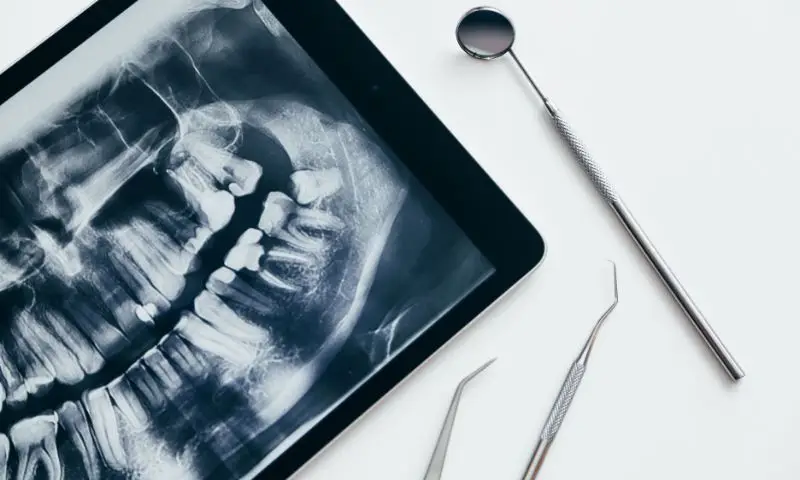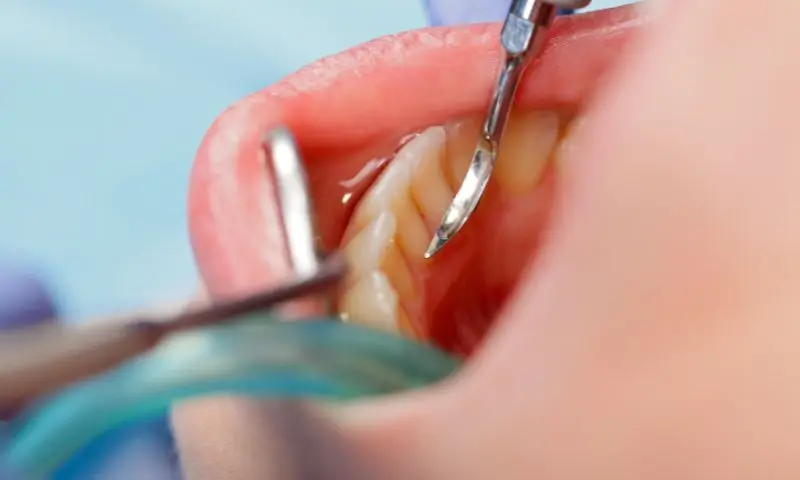


Oral health in the early years of life has a significant impact on future quality of life. Pediatric dentistry is the specialty responsible for caring for and preserving the dental health of children and adolescents, from birth to 18 years old.
Our goal is not only to treat existing problems but also to educate and prevent, establishing lasting habits that will accompany the younger generation throughout their lives. On this page, we will explain in detail the key stages of pediatric dentistry, its benefits, and the advantages it brings to ensure healthy and happy smiles.

Preventive care in pediatric dentistry is essential for ensuring the oral health of children and adolescents and for establishing habits that will accompany them throughout their lives. This branch of dentistry is not only focused on solving dental problems, but also prioritizes the early identification of risk factors that could lead to major complications. Regular visits to the pediatric dentist are crucial, as they allow for constant monitoring of the condition of the teeth and gums, as well as an assessment of potential developmental issues. During each visit, the pediatric dentist not only examines the oral health status but also provides personalized recommendations to maintain it in optimal condition.
One of the key aspects of prevention in pediatric dentistry is professional cleaning procedures and fluoride applications. These techniques are highly effective in strengthening tooth enamel and significantly reducing the risk of cavities, which is one of the most common dental problems in childhood. Cleanings help remove bacterial plaque that daily brushing cannot reach, while fluoride reinforces the natural resistance of the teeth. Additionally, pediatric dentists often use dental sealants as an extra preventive measure, covering the grooves of the molars to prevent the accumulation of bacteria and food particles in these vulnerable areas.
Education also plays a crucial role in preventive pediatric dentistry. Pediatric dentists take the time to educate parents and caregivers about the importance of instilling good oral hygiene habits from an early age. These recommendations include proper brushing techniques, flossing, and choosing appropriate dental products, such as fluoride toothpaste. Furthermore, emphasis is placed on the importance of maintaining a balanced diet, limiting sugar intake, and promoting foods that support dental health.
Prevention is always better than treatment, and preventive care in pediatric dentistry is the key to ensuring healthy dental development free of complications. Thanks to a proactive approach, this specialty not only protects children’s oral health but also lays the foundation for an adult life with strong, healthy teeth. By encouraging good habits and conducting regular check-ups, pediatric dentists help ensure that young patients develop a positive and confident relationship with dental care, ensuring happy and healthy smiles for years to come.

When dental problems arise in children and adolescents, pediatric dentistry offers specific and highly effective solutions tailored to the unique needs of each young patient. This specialty covers a wide range of conditions, from the most common, such as dental cavities, to more complex cases like fractures or dental wear. Each procedure is designed to restore functionality and oral health, while maintaining a special focus on aesthetics. Customizing each treatment is key to ensuring effective and comfortable results, promoting the child’s confidence and peace of mind throughout the process.
One of the most common problems pediatric dentists address is cavities, a condition that can progress quickly if left untreated, affecting both primary and permanent teeth, and consequently, overall health. Treatments for this condition include cleaning and removal of affected tissue, along with the restoration of the dental structure using durable and safe materials. Repairing fractured teeth, common in cases of falls or accidents, is also a frequent intervention. In these situations, advanced techniques and aesthetic materials are applied, achieving an appearance and functionality very similar to the natural tooth.
Another important focus of pediatric dentistry is correcting malocclusion issues, which can lead to severe complications if not treated in time. These conditions affect the bite, dental alignment, and even the health of the temporomandibular joints. Thanks to preventive or interceptive orthodontic techniques specially designed for children, it is possible to avoid more invasive treatments in the future. These solutions not only improve the appearance of the teeth but also optimize the functionality of the entire oral cavity.
Finally, a key aspect of pediatric dentistry is the environment designed to reduce fear and anxiety in children during their visits. Pediatric dentists use specialized methods and equipment to ensure safe and efficient procedures. Moreover, a warm approach and the creation of a friendly environment are essential to minimize any discomfort or fear. This comprehensive approach ensures quality oral care and fosters a positive perception of the dentist, establishing healthy habits that will last into adulthood.

Pediatric dentistry goes far beyond treating dental problems; its essence lies in education and prevention, both for children and their families. From the earliest years of life, this approach encourages the adoption of oral hygiene habits that contribute to optimal dental health throughout the years. Teaching children about the importance of brushing their teeth correctly, using dental floss, and maintaining a balanced diet not only improves their oral wellbeing but also helps them understand how their oral health is connected to their overall health. This knowledge, presented in an understandable and accessible manner, forms the foundation of a lasting commitment to taking care of their smile.
An essential aspect of pediatric dentistry is the collaboration between the pediatric dentist and parents or caregivers. Pediatric dentists educate families on daily oral care practices and offer guidance on topics such as selecting appropriate dental products and handling common issues like pacifier use or childhood bruxism. This continuous support builds trust and motivates caregivers to maintain an environment that fosters healthy dental development. Additionally, pediatric dentists emphasize the importance of regular dental visits, highlighting their preventive role.
The warm and friendly environment that pediatric dentists create in their offices is another key factor. Through games, simple explanations, and a close approach, they help children feel comfortable and secure. This approach is particularly valuable for reducing fear or anxiety that some children may experience during their visits to the dentist. A positive dental experience in childhood significantly contributes to children developing a favorable attitude toward dental care, which is crucial for their future health.
Finally, establishing a trusting relationship with the pediatric dentist from an early age creates a solid foundation for healthy and sustainable oral health habits. Children who feel calm and understood during their dental visits are more likely to remain consistent with their dental care as they grow. This early commitment not only benefits their immediate oral health but also enables them to face adulthood with strong, healthy teeth, fewer complications, and a positive attitude toward professional care of their smile. Pediatric dentistry, therefore, is much more than a dental specialty: it is a fundamental pillar in building healthy habits and supporting the overall development of young children.
Pediatric dentistry offers multiple essential benefits for children’s oral health. It helps prevent future dental problems through regular evaluations and timely treatments. Additionally, it promotes the development of long-lasting hygiene habits from an early age. With specialized treatments, it enhances both the functionality and aesthetics of dental health. It also ensures an approach tailored to children and adolescents, fostering a positive and comfortable relationship with the dentist that lasts over time.

It’s recommended that your child be seen by the dentist before their first birthday or when their first tooth appears. This allows for early detection of problems and guidance on dental care for children.
Our specialized pediatric dentistry team is trained to create a friendly and relaxing environment. We use specific techniques to build trust and make the experience positive and stress-free.
Regular checkups and dental cleanings are recommended every six months. This helps prevent problems and maintain optimal oral health.
We offer a wide range of treatments, such as dental sealants, fluoride applications, cavity treatment, correction of malocclusions, and repair of damaged teeth, always tailored to the needs of children.
The key is proper daily oral hygiene, including brushing with fluoride toothpaste. It’s also important to limit sugary foods and drinks and see your pediatric dentist regularly.
614 415 8236 Call us and schedule your appointment

At Digital Dental Group, we are committed to your oral health. In addition to providing the necessary expertise to offer you highly successful service, we also have cutting-edge equipment to make your treatment easier, more professional, and more precise.
9:00 AM - 5:00 PM
9:00 AM - 1:00 PM
Copyright © 2025. All rights reserved. Web Design & Hosting: tuempresaenlared.NET